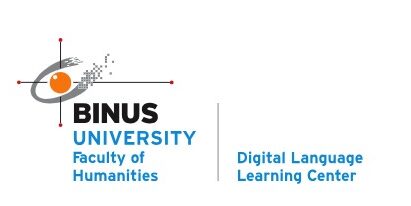[ARTICLE] The Power of Learning Foreign Languages

Hello Binusians! In our interconnected world, learning a foreign language is no longer just an academic requirement, it’s now more as a gateway to cultural understanding, economic opportunity, and personal growth. For those who are able to speak two or more languages, do you feel that bilingual individuals often experience enhanced cognitive flexibility, better problem-solving skills, and delayed cognitive aging more?
If you are going to, or currently and even already on internship, on a practical level, language proficiency unlocks access to global job markets, strengthens intercultural empathy, and fosters more meaningful travel experiences. It means, easier communication skills in your professional area! So perhaps you wondering, what are the reasons for me to learn foreign language? Does it matter? Well it does! Take a look at these possibilities:
- Cognitive Benefits
Bilingualism stimulates mental agility. Daily practice in switching between languages helps the brain develop multitasking abilities and memory retention. - Cultural Connection
Language is culture. Speaking the native tongue allows deeper connections with local histories, traditions, and perspectives—bridging divides and enriching personal worldviews. - Academic and Career Edge
Proficiency in a second language enhances resumes, broadens professional networks, and opens doors to diverse roles in diplomacy, international business, education, and technology.
As you probably known, the past decade, the educational world has seen a shift from traditional classroom methods to digital-first approaches. Online platforms, mobile apps, and AI-powered tutors offer flexibility and personalization that textbooks can’t match. Learners can study anytime, anywhere—whether commuting, waiting between appointments, or relaxing at home.
Key advances include (1) adaptive learning algorithms that tailor content to individual skill levels and learning styles, (2) gamification elements such as using points, badges, and progress streaks to maintain engagement, and (3) multimedia delivery such as integrating audio, video, interactive exercises, and native-speaker content. These current innovations not only improve retention, they also turn language study into enjoyable daily habits.
Beelingua: A Prime Example of Digital Innovation
One standout platform in this digital wave is Beelingua, developed by BINUS University. Launched in 2020, the app offers structured, gamified content across English, Chinese, Japanese, and (coming soon) BIPA courses, aligned with CEFR levels from beginner to advanced. Students progress through units, checkpoints, and final mastery tests to track progress and motivate consistent study.
Beelingua’s interface is immersive with vibrant graphics, game-like elements, and multimedia exercises make learning feel less like work, more like an adventure. It’s fully integrated into BINUS’s enrichment and internship programs, ensuring students not only learn languages but apply them in academic and professional contexts.

Beelingua encapsulates several hallmarks of modern digital learning which are:
- Personalization: Learners choose among courses, languages, and skill areas (reading, listening, speaking) to match their goals
- Gamification: Life Points and journey checkpoints drive motivation and engagement
- Multiplatform access: Available on smartphones, tablets, and web, Beelingua supports learning wherever life takes you
- Real-world relevance: Integrated into academic requirements and professional programs, it bridges theory and practice
In summary, the importance of learning foreign languages is undeniable; personally, cognitively, and professionally. At the same time, traditional methods often fail to engage learners consistently or flexibly. Therefore, digital platforms like Beelingua change that by combining structure, motivation, and real-life application in accessible, user-centered ways.
By gamifying progress, offering engaging multimedia content, and embedding language learning into broader academic goals, Beelingua stands as a leading example of how technology can transform language acquisition—making foreign languages not just a skill, but a habit and a gateway to global citizenship. So now, if you have access to Beelingua, let’s start your journey shall we?

Comments :